Related Research Articles

Palestine, officially the State of Palestine, is a country in the southern Levant region of West Asia recognized by 146 out of 193 UN member states. It encompasses the Israeli-occupied West Bank, including East Jerusalem, and the Gaza Strip, collectively known as the occupied Palestinian territories, within the broader geographic and historical Palestine region. Palestine shares most of its borders with Israel, and it borders Jordan to the east and Egypt to the southwest. It has a total land area of 6,020 square kilometres (2,320 sq mi) while its population exceeds five million people. Its proclaimed capital is Jerusalem, while Ramallah serves as its administrative center. Gaza City was its largest city prior to evacuations in 2023.
Arabic music is the music of the Arab world with all its diverse music styles and genres. Arabic countries have many rich and varied styles of music and also many linguistic dialects, with each country and region having their own traditional music.
The music of Israel is a combination of Jewish and non-Jewish music traditions that have come together over the course of a century to create a distinctive musical culture. For almost 150 years, musicians have sought original stylistic elements that would define the emerging national spirit. In addition to creating an Israeli style and sound, Israel's musicians have made significant contributions to classical, jazz, pop rock and other international music genres. Since the 1970s, there has been a flowering of musical diversity, with Israeli rock, folk and jazz musicians creating and performing extensively, both locally and abroad. Many of the world's top classical musicians are Israelis or Israeli expatriates. The works of Israeli classical composers have been performed by leading orchestras worldwide.

The music of Palestine is one of many regional subgenres of Arabic music. While it shares much in common with Arabic music, both structurally and instrumentally, there are musical forms and subject matter that are distinctively Palestinian.
Tamer Nafar is a Palestinian rapper, actor, screenwriter and social activist of Israeli citizenship. He is the leader and a founding member of DAM, the first Palestinian hip hop group.

Sawt is a kind of popular music found in Kuwait and Bahrain.
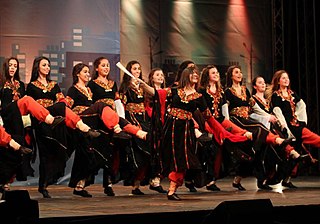
Dabke is a Levantine folk dance, particularly popular among Lebanese, Jordanian, Palestinian, and Syrian communities. Dabke combines circle dance and line dancing and is widely performed at weddings and other joyous occasions. The line forms from right to left and the leader of the dabke heads the line, alternating between facing the audience and the other dancers.
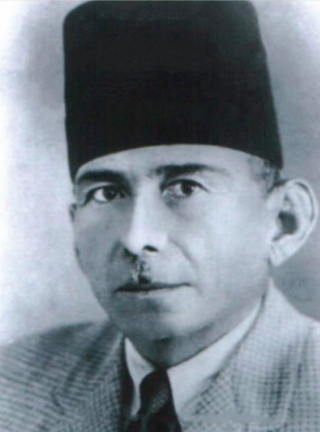
Issa Daoud El-Issa was a Palestinian poet and journalist. With his cousin Yousef El-Issa, he founded and edited the biweekly newspaper Falastin in 1911, based in his hometown of Jaffa. Falastin became one of the most prominent and long running in the country at the time, and was dedicated to the cause of the Arab Orthodox Movement in struggle with the Greek clergy of the Orthodox Patriarchate of Jerusalem. The newspaper was the country's fiercest and most consistent critic of the Zionist movement, denouncing it as a threat to Palestine's Arab population. It helped shape Palestinian identity and was shut down several times by the Ottoman and British authorities.
The Palestine Center is an independent educational program based in Foggy Bottom, Washington, D.C. Their focus is on the Israeli–Palestinian conflict and other Middle East issues.
Hisham Sharabi was a Palestinian historian and writer. He was Professor Emeritus of History and Umar al-Mukhtar Chair of Arab Culture at Georgetown University, where he was a specialist in European intellectual history and social thought. He died of cancer at the American University of Beirut hospital on January 13, 2005.

Al-Quds Arab Capital of Culture was the name given to Arab Capital of Culture programme in 2009. The programme, organised by UNESCO and the Arab League, is designed to promote Arab culture and encourage cooperation in the Arab world. The 2009 event was the 14th programme since its establishment in 1996.

Mohsen Subhi was a Palestinian composer of classical Arabic music and an arranger of modern Palestinian music and folk song.
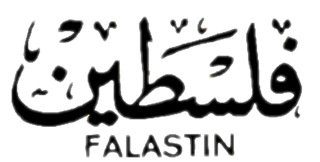
Falastin was an Arabic-language Palestinian newspaper. Founded in 1911 in Jaffa, Falastin began as a weekly publication, evolving into one of the most influential dailies in Ottoman and Mandatory Palestine.

The two-state solution is a proposed approach to resolving the Israeli–Palestinian conflict, by creating two states on the territory of the former Mandatory Palestine. It is often contrasted with the one-state solution, which is the establishment a single state in former Mandatory Palestine with equal rights for all its inhabitants. The two-state solution is supported by many countries and the Palestinian Authority. Israel currently does not support the idea, though it has in the past.

Wanees Zarour is a Chicago-based music composer, focusing on contemporary Middle Eastern Music. He is an accomplished oud, buzuq, percussion and violin player, having been featured in many international music festivals. He released his first album, Quarter to Midnight, in 2014.

Ramzi Aburedwan is a Palestinian composer, arranger, educator; and viola and buzuq player. He is the founder of Ensemble Dal’Ouna and the Palestine National Ensemble of Arabic Music. He founded the al Kamandjâti music centre and has collaborated with international and renowned musicians. He first studied at the Edward Said National Conservatory of Music and then in the Regional Conservatory of Angers (France). Documentaries have been made of his life, including Its Not a Gun (2005) and Just Play (2012). He is the main subject of the book Children of the Stone: The Power of Music in a Hard Land by Sandy Tolan (2015).
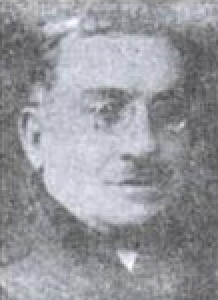
Yousef El-Issa was a Palestinian journalist. He established the Falastin newspaper with his cousin Issa El-Issa in 1911, based in his hometown of Jaffa. Falastin became one of the most prominent and long running in the country at the time, was dedicated to Arab Nationalism and the cause of the Arab Orthodox Movement in its struggle with the Greek clergy of the Orthodox Patriarchate of Jerusalem. They were passionately opposed to Zionism and Jewish immigration to Palestine. He has been described by a researcher to be "a founder of modern journalism in Palestine". He founded a newspaper entitled AlifBa in Damascus in March 1930.
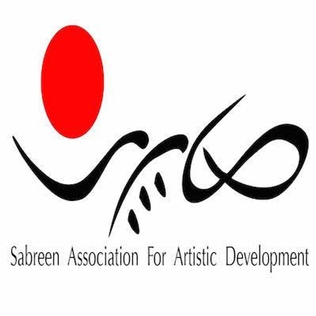
Sabreen is a pioneer Palestinian musical group. Based in East Jerusalem, Sabreen was founded in 1980 by Said Murad. Their vision focused on the development of the Palestinian modern song, reflecting the humanitarian and cultural reality in general, and the suffering endured from the political situation in particular. Sabreen's members have changed over the years, the most notable members were Said Murad, Kamilya Jubran, Odeh Tourjman, Issa Freij, Yacoub Abu Arafeh, Issam Murad, Samer Mussallem, and Wissam Murad. Said Murad is the composer and arranger of the music, and Kamilya Jubran was the lead vocalist on four albums out of the five studio albums released.
Rohi al-Khammash (1923–1998) was an Iraqi musician and composer of Palestinian origin who played a major role in the development and preservation of Iraqi music and the flourishing of the musical movement in Iraq. He founded artistic groups that greatly contributed to the preservation and development of Iraqi artistic heritage, such as the Muwashahat Group in 1948, whose name was changed to “the Sons of the Tigris Group” in 1961, the Iraqi Chanting Group, and the Baghdad Quintet, which later became known as the Quintet of Fine Arts, among other groups that left a distinct mark on art, singing, and Iraqi music during the second half of the twentieth century. He composed the anthem "O God of the Universe," which is a religious supplication associated with the traditions and rituals of Ramadan in Iraq.

Sol Band, sometimes known as just Sol, is a Palestinian band from the Gaza Strip, established in 2012. They are best known for their 2022 song "Raweq wa Haddy".
References
- 1 2 3 4 5 6 "The world at hand". Chicago Tribune. 2004-05-14. Archived from the original on 2025-01-25. Retrieved 2025-01-25.
- 1 2 3 Carnig, Jennifer (2004-11-04). "Middle East Music Ensemble: Group takes anthropological approach to music-making". University of Chicago Chronicle. Retrieved 2025-01-25.
- 1 2 "International flights". Chicago Tribune. 2006-12-29. Archived from the original on 2025-01-25. Retrieved 2025-01-25.
- 1 2 3 Romero, Angel (20 November 2018). "Artist Profiles: Issa Boulos". World Music Central. Retrieved December 7, 2020.
- 1 2 "Palestinians Vote in Presidential Elections; Interview With Ricky Martin". CNN. 2005-01-09.
- ↑ "Global Notes: Chicago Oud Masters Perform in Studio - WBEZ". WBEZ. May 5, 2010. Retrieved May 27, 2016.
- ↑ "CSO's take on world music". Chicago Tribune. 2006-09-16. Archived from the original on 2025-01-25. Retrieved 2025-01-25.
- ↑ Khoury, Suhail. "Palestine's Contribution to the World Music Scene". This Week in Palestine . Retrieved 2025-01-25.
- ↑ Kendrick, Peter Margasak, Monica (2006-09-14). "The Reader's Guide to the World Music Festival". Chicago Reader. Retrieved 2025-01-25.
{{cite web}}: CS1 maint: multiple names: authors list (link) - 1 2 3 4 5 6 Asmar, Sami (2009). "Issa Boulos Brings al-Hallaj back to Life". Al Jadid . Retrieved 2025-01-25.
- ↑ "Global Notes: Music born from conflict". WBEZ. 2013-08-21. Retrieved 2025-01-25.
- ↑ "Tribute to a legend". Gulf Times. 2014-06-08. Retrieved 2025-01-25.
- ↑ Toumi, Habib (2018-09-15). "Qatar concerts to foster music appreciation". Gulf News. Retrieved 2025-01-25.
- ↑ Horowitz, Amy (2022-05-06). "Amy Horowitz - Review of Issa Boulos, Virginia Danielson and Anne K. Rasmussen, editors, Music in Arabia: Perspectives on Heritage, Mobility, and Nation". Journal of Folklore Research Reviews. ISSN 2832-8132.
- ↑ Shannon, Jonathan H. (June 2022). "Music in Arabia: Perspectives on Heritage, Mobility, and Nation by Issa Boulos, Virginia Danielson, and Anne K. Rasmussen, eds". Journal of Anthropological Research. 78 (2): 267–268. doi:10.1086/719316. ISSN 0091-7710.
- ↑ Samadani, Cecilia. "Middle Eastern Languages Department hosts lecture on 20th century Palestinian music". The Carletonian. Retrieved 2025-01-26.
- 1 2 Tsigka, Celia. "Soundwaves of expression: how music shapes social consciousness". Stavros Niarchos Foundation Dialogues . Retrieved 2025-01-26.
- ↑ "Alumni". Leiden University. Retrieved 2025-01-25.
- 1 2 "The 'Disappearance' of George Kirmiz: Unravelling a Palestinian Musical Mystery". Palestine Chronicle. 2022-10-13. Retrieved 2025-01-26.
- ↑ Hofland, Thomas (2024-01-19). "Brehony, Louis. Palestinian Music in Exile: Voices of Resistance". Arab Studies Quarterly. 46: 77–79. doi:10.13169/arabstudquar.46.1.0077. ISSN 0271-3519.
- ↑ "Of Course Lowkey Is a Target – Music Is Essential to the Palestinian Struggle". Novara Media . 2022-04-13. Retrieved 2025-01-26.
- ↑ "Music Center Coordinator Issa Boulos: Harper College". Harper College. Retrieved 2025-01-26.
- ↑ Al-Hallaj - Issa Boulos, AllMusic, retrieved 2025-01-26
- ↑ Catsoulis, Jeannette (2007-07-11). "Back in Iraq, Unearthing Old and New". The New York Times. ISSN 0362-4331. Archived from the original on 2025-01-26. Retrieved 2025-01-26.
- ↑ Rif - Issa Boulos, Nermin Kaygusuz, AllMusic, retrieved 2025-01-26